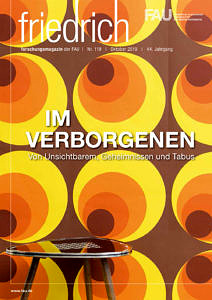A sweet melody or a grating noise?

The ear is a fascinating organ: it catches airborne vibrations which hit the ear drum and transfers them to the brain. People can perceive vibrations of between 20 hertz and 20 kilohertz. That can be measured, as can the sound pressure level, which we normally refer to as volume. However, physics cannot measure how we react to tones. Noise or dissonance are human, often unconscious, perceptions which can scarcely be described rationally.
For example, the objectively quiet buzzing of a fly, which measures approximately 10 decibels, can be perceived as being considerably more annoying than the sound of the sea, which with 60 decibels is approximately as loud as a motorbike driving past. How we react to a sound also depends on its benefit to us. The neighbour’s outdoor heating pump can keep us awake at night, but our own is seen as being significantly less annoying.
Sounds give information
‘Noise is the wrong sound at the wrong place at the wrong time,’ says Stefan Becker. Becker is a professor at the Chair of Process Technology and Machinery (IPAT) and coordinates the research area ‘Fluid system dynamics and flow acoustics.’ He and his team are investigating the effect of sounds on people. Using models simulating the human hearing system, they are trying to make reliable predictions concerning the characteristics of a sound.
One of their objectives is to explore how to reduce noise, for example by developing flow-optimised turbo engines or ventilation systems. However, technology should not always just be quiet, it should also meet expectations and give feedback. ‘A vacuum cleaner which doesn’t make any sound at all, for example, would be considered inefficient,’ explains Stefan Becker. ‘And an expensive car needs to sound high quality.’ At present, the team is currently concentrating on investigating the sound design of vehicles and e-bikes, collaborating with well-known manufacturers.
About the author
Matthias Münch studied sociology before working as a freelance journalist for several daily newspapers. Since 2001, he has been providing support for companies and academic institutions in the areas of PR and corporate communication.
FAU research magazine friedrich
 This article first appeared in our research magazine friedrich. You can order the print issue (only available in German) free of charge at presse@fau.de.
This article first appeared in our research magazine friedrich. You can order the print issue (only available in German) free of charge at presse@fau.de.